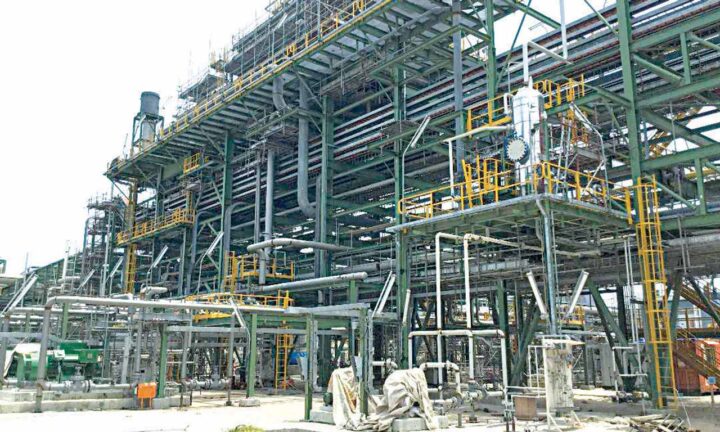Dangote Industries Limited has announced that its $2 billion petrochemical plant is designed to produce 77 different high grades of polypropylene in the country.
The Dangote petrochemical plant is situated alongside its oil refinery located in the south-east of the Lekki Free Trade Zone (FTZ) in Ibeju-Lekki, Lagos state.
Polypropylene is a thermoplastic used in various household and industrial applications such as consumer products; fashion and sports products; medical equipment like syringes, specimen bottles; plastic parts for machinery and equipment used in the automotive and textile industries.
In a statement on Sunday, the company said that with a turnover of $1.2 billion, the plant has been positioned to cater to the demands of the growing plastic processing downstream industries in Africa and other parts of the world.
Advertisement
Devakumar Edwin, Dangote Industries Limited group executive director (strategy, capital projects and portfolio development), said the plant would drive investment in the downstream industry, generate value addition, create jobs, increase tax revenues, reduce foreign exchange outflow and increase Nigeria’s gross domestic product (GDP).
Edwin also said the petrochemical plant would reduce the demand for foreign exchange from the country’s treasury to import petrochemical by-products.
“We have 77 types of polypropylene, which can go for different usage that we can produce from our petrochemical plant,” he said.
Advertisement
“Currently, the plant is capable of producing about 900,000 tonnes of polypropylene per annum. Our petrochemical plant should be the biggest in Africa.
“Right now, raw materials from polypropylene are imported into the country even as there is no foreign exchange for manufacturers to import raw materials. The Dangote plant is going to take care of this challenge.
“When the raw materials are locally available, there will be many more people who will be willing to invest in the economy.
“So, it’s not just the savings of foreign exchange from petrochemical products’ importation, but the country’s downstream sector will also benefit hugely from the availability of raw materials in the country.”
Advertisement
Add a comment





